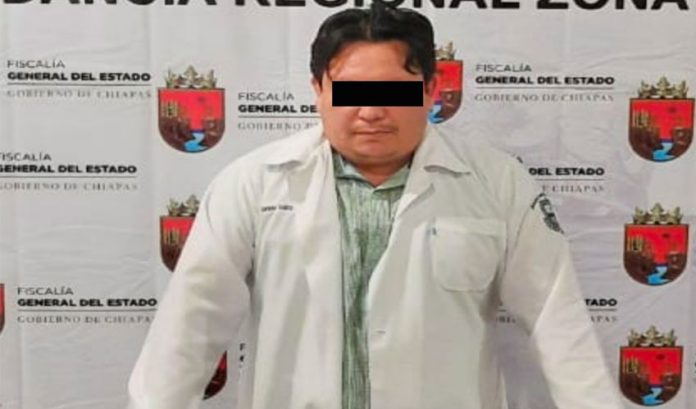A man posing as a doctor was arrested in Tapachula, Chiapas, on Saturday for selling fake shots of Covid-19 vaccines for 1,000 to 1,500 pesos.
Gerardo “N,” 40, was found in a hotel — where he allegedly administered the vaccines — wearing a doctor’s uniform with state Health Ministry logos and in possession of a plastic bag with empty syringe cases, two empty bottles of sodium chloride, fake vaccination certificates and a list of people who had received the shots.
The border town is the primary entry point for immigrants entering the country from Central America, many of whom see the United States as their ultimate destination.
Chiapas has the second lowest rate of vaccination of any state in the country, according to information published by the Health Ministry. Only 29% of the adult population has received at least one shot; Puebla is in last place with 26%.
The low rate of uptake is attributable to a low rate of Covid-19 cases in the state and a widely dispersed population, which reduces the risk of transmission.
Religious beliefs and the scant information about vaccination in mountainous regions of the southern state have also been cited. Some indigenous people in Chiapas have rejected vaccines altogether, instead placing their faith instead in a traditional Mayan liquor and a beloved patron saint.
Meanwhile, trust in the federal government is low in the state where the militant Zapatista Army of National Liberation (EZLN) controls large swaths of territory. Faith in vaccines wasn’t helped by an episode in 2015 when two babies died after receiving vaccines, and 29 more were hospitalized.
In line with the national picture, Chiapas is experiencing a third wave of the pandemic. However, it has the lowest number of Covid-19 cases per 100,000 inhabitants for any state: 236 per 100,000 people, compared to the most severe rate of 8,412 per 100,000 in Mexico City.
The state is one of three that are green on the coronavirus stoplight map, alongside Coahuila and Aguascalientes.
Covid-19 vaccines are provided free by the federal government, and their sale is illegal.
With reports from Milenio and Animal Político
